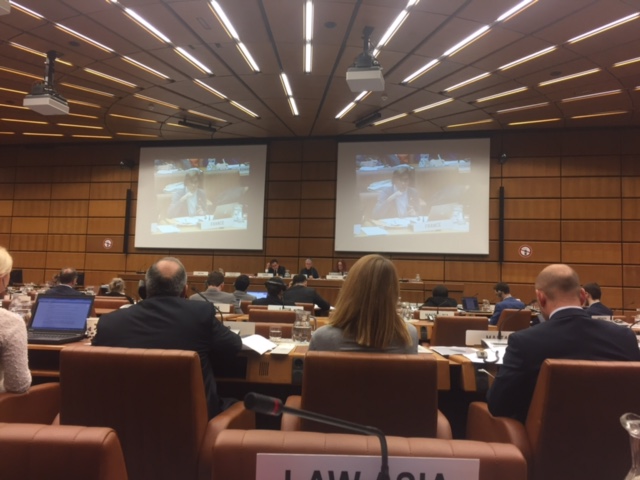Linc Energy – how not to regulate and enforce environmental laws

Last Week’s Linc Energy decision out of Queensland – Linc Energy Ltd (in Liq) [2017] QSC 053 – could be seen as merely an arcane constitutional outcome arising from distant Commonwealth-State negotiations leading to a finding that a state environmental law prevailed over settled principles of insolvency law under the Corporations Act. Liquidators should take their […]
Micro and small to medium enterprises – what to do about their insolvency

With latest ABS data showing that Australia is primarily a nation of small business operators, largely successful, it is perhaps to timely to also report that the inevitable failure and then efficient disposal of some of them, with some accountability, is not well addressed by our laws. While the focus of insolvency is invariably at the high end, […]
Liquidators’ remuneration – Sakr Nominees reaffirmed
A senior Judge has approved the remuneration of a liquidator in full based upon the principles set out in the recent appeal decision in Sakr Nominees. In fact, the Judge, Justice Fabian Gleeson, of the NSW Court of Appeal, as on the appeal bench in Sakr. The liquidation It was a members’ voluntary liquidation but […]
Directors and their safe harbour – how to get them to behave

An aim of the latest “safe harbour” insolvency reforms is to “drive cultural change” in company directors by encouraging them to keep control of their company with a view to working on its recovery, rather than simply putting the company into a formal insolvency administration. While changing the law will assist, much more beyond that is […]
Whistleblowing, as a means of professional regulation?

The use of whistleblowers in the regulation of tax and corporate law, and the bases for incentivizing and protecting them, are significant policy and legal issues. The potential for whistleblower abuse, or its uninformed use, is evident. A wider importance of reporting offences is apparent in a negative sense, given the various current inquiries where institutionalized criminal abuse […]
Protected: The facts of the ethics hypothetical of the Academy of Law 4 April 2017
There is no excerpt because this is a protected post.
The law and lawyers: their limits – an Academy of Law Ethics Hypothetical

The Australian Academy of Law held the first of its three Sydney conferences for the year on 4 April 2017 under the theme of the law and ethics. It was a very successful and thought provoking event before a large audience of around 200 lawyers and other professionals, judges and academics, in the ceremonial court […]
The bankruptcy of Sir Garfield Barwick, Chief Justice of the Australian High Court – an example of a true ‘fresh start’

A significant aspect of our legal, social and political history has been revealed through a paper presented on the financial difficulties and subsequent bankruptcy of Sir Garfield Barwick, who became the Chief Justice of the High Court of Australia. Lessons from that history are then shown to have direct relevance to the debates about bankruptcy […]
The Fletcher Moot – the winners, and the many honourable law student competitors

The Fletcher Moot 2017 was a significant organisational and educational achievement in the teaching of insolvency, in this case, the complexity of cross-border insolvency. It brought together law school teams from around the world to compete in presenting and arguing complex factual and legal issues before panels of local and international judges, with the closing […]
Law reform – a carve-out from directors’ insolvent trading liability, with a change in their culture in return

The draft ‘safe harbour’ provisions proposed by the government offer directors two advantages in what must be their genuine attempts to save their business. A consequence is that the liquidator, waiting in the background if things do not go as planned, takes on an extra burden in any pursuit of those directors, save for one reform in […]
Memorandum of Understanding – AFSA and ARITA

The Inspector-General in Bankruptcy has announced that a memorandum of understanding has been entered into between AFSA and ARITA, dated 20 February 2017. The MOU records various general liaison arrangements and other such matters but it is not, as had been anticipated, entered into in support of the new law introduced by the Insolvency Law Reform Act 2016, which […]
Academy of Law Newsletter 3.17 – ethics hypothetical, legal education conference, essay prize, rare books …

The latest newsletter of the Australian Academy of Law lists a wide range of events and news indicating the work and interests of the Academy. · an ethics hypothetical in Sydney chaired by John Sheahan SC with a panel including Bret Walker SC, Professor Peter Cashman, Cathie Armour of ASIC and Michael Lavarch. Two further […]
Funding of ASIC’s insolvency regulation – what has the Attorney-General got to say?

Bills have been introduced into parliament to provide funding for ASIC’s regulation of the industries and professions it regulates. In relation to corporate insolvency practitioners – call them liquidators – a proposal is on the table that would impose fees on liquidators themselves, consistent with the view that those regulated should fund the cost of their regulation. […]
Traill insolvency conference 1-2 May – the ILRA changes – pre-sale closes tomorrow – 31 March

For those registered at Rosie Traill’s excellent annual conference, and those who register by the early bird deadline tomorrow, Friday 31 March, I would like to invite you to email me about any particular issues or concerns you have with the Insolvency Law Reform Act 2016 changes, so that I can focus on them at the session I am presenting at […]
Australian safe harbour and ipso facto reforms

Obviously prompted by my reporting of significant restructuring reforms in the EU, and my query as to the long delayed progress in attending to proposed reforms in Australia, the government has today released the obliquely named Treasury Laws Amendment (2017 Enterprise Incentives No. 2) Bill 2017. These reforms are the result of high level input […]
Lifting the fear and suppressing the greed – a Senate committee report on penalties for white collar crime

A long awaited Senate committee report on penalties for white collar crime was issued on 23 March 2017 under the rather dramatic title of ‘Lifting the fear and suppressing the greed’: Penalties for white-collar crime and corporate and financial misconduct in Australia. For all that drama, the report offers a fairly uncontroversial and hardly novel […]
Pre-insolvency or restructuring professionals – “Pifors”

At a conference held on 24 March by the QUT Commercial and Property Law Research Centre, a presenter, Dr Georg Kodek, explained ideas being proposed by the EU in implementing a Restructuring Directive (directive) for its members states. That directive follows on from a conference and report in mid-2016, in both of which QUT was involved.[1] One such proposal, […]
The gender profile of the insolvency profession: occupational segregation?

Would you like to study the question of gender balance in the insolvency profession? That topic is the subject of a call from the QUT School of Accounting for students at a Masters or PhD level interested in researching the issue. As QUT explains, given the advances in representation by women in the accountancy profession generally, […]
Insolvency law’s unfortunate ‘split commencement’

The unfortunate decision of the government to split the commencement date of the ILRA 2016 has created confusion, compounded by apparent difficulties in the government and law publishers to provide accurate point in time legislation. In retrospect, it would have been better to proceed with say a 1 June 2017 commencement date, if the profession […]
Cross-border insolvency – foreign judgments and enterprise groups

I earlier reported on my December 2016 attendance in Vienna, on behalf of LAWASIA, and UNCCA, on the two model laws that UNCITRAL Working Group V (Insolvency) has been drafting. Each proposed model law has the potential to provide significant assistance in cross-border insolvencies. This is an extract from a longer commentary, which, for those […]
Cross-border insolvency – recognition of insolvency judgments; enterprise groups – UNCITRAL Working Group V, Vienna 2016-New York 2017

I earlier reported on my attendance in Vienna, on behalf of LAWASIA, and UNCCA, the United Nations Commission on International Trade Law [UNCITRAL] session of Working Group V (Insolvency Law) from 12-16 December 2016. WGV is working on two model laws, each of which has the potential to provide significant assistance in cross-border insolvencies. The following provides a more principles-based […]
Senator John Williams – a driving force behind our insolvency reforms

Senator John Williams is familiar to us in the insolvency profession as the one politician who has had a particular focus on the operation of our insolvency regime and the conduct of its practitioners. Senator Williams was good enough to speak with me about the new insolvency reforms, under the Insolvency Law Reform Act 2016, some […]
INSOL Academics 2017

The INSOL Academics Colloquium was held over the weekend of 18-19 March 2017 in Sydney. The session covered a wide range of topics relevant to Australian practitioners and academics and policy makers. These included the potential impacts of Brexit on UK insolvency; the impact of the EU changes on Australian creditors; comparative creditor protections in […]
“Two issues of importance in insolvency practice” – holding DOCAs upheld; pre-appointment conflict claim rejected

What the WA Supreme Court described as the two issues of importance in insolvency practice were whether holding DOCAs (deeds of company arrangement) were a legitimate process in the restructuring of an insolvent company under Part 5.3A of the Corporations Act; and the extent permitted of pre-appointment meetings of administrators with the board of the company without compromising their independence […]

